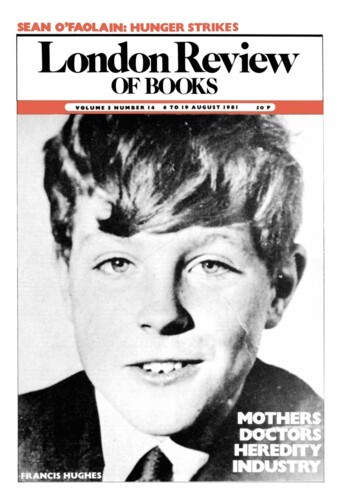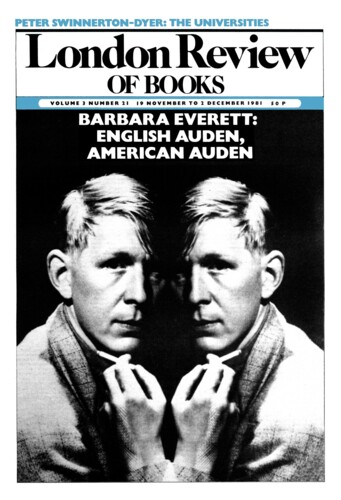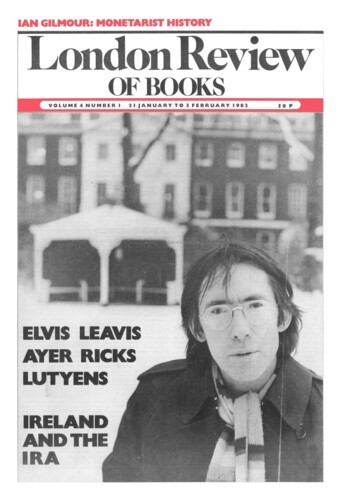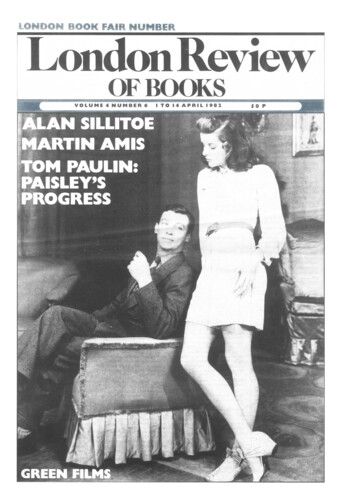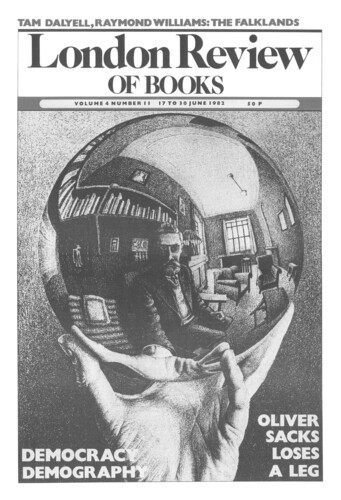Carlyle’s Mail Fraud
Rosalind Mitchison, 6 August 1981
These volumes are issued as a pair, with a single index, and rightly, because they hold together for a coherent segment of Carlyle’s life. The dominant theme of the two is the writing of The French Revolution: in Volume VIII Carlyle is struggling with the first two volumes, in IX he produces the third, spends four months battling with the proofs and finally sees the whole book published and reviewed. It made him into a successful literary figure, justified his move to London, and gave him enough financial security to put ‘take it or leave it’ terms before his publisher. In 1835, the publisher had jibbed at the idea of an English edition of Sartor Resartus: ‘he shrieked at the very notion,’ wrote Carlyle. At the end of 1837, Carlyle was standing out for £50 a volume for his two books and a volume of reviews, five volumes in all. Reviewers might, and most of them did, complain feelingly about Carlyle’s style, but everywhere it was acknowledged that The French Revolution was a landmark in the concept of history. In 1837, Carlyle had the chance of lecturing to an expensive audience. It terrified him. Since he resolutely refused to prepare notes for it, the terror did not abate. At £135 for half a dozen lectures, he was free of financial pressure for a year.
